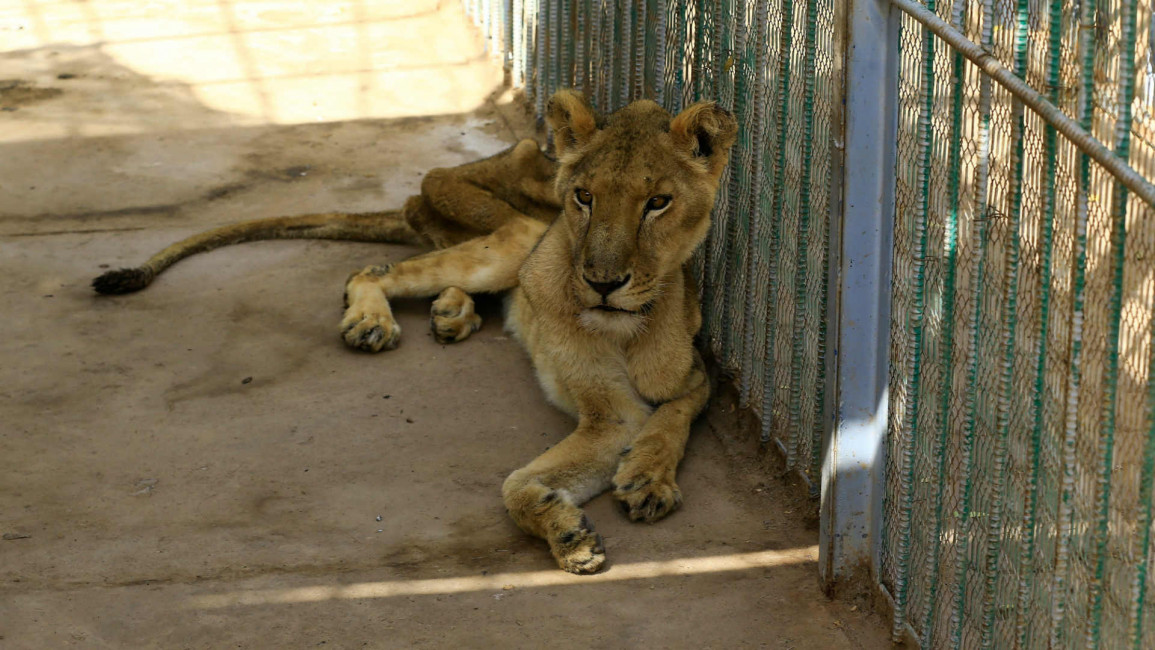Sudan vets scramble to save starved lions at Khartoum zoo
The fifth, a lioness, died on Monday of dehydration and a lack of food despite receiving intravenous fluids for several days following the launch of an online campaign for help.
Shocking photos of the captive emaciated lions spread quickly on Sudanese social media last week. The animals had lost as much as two-thirds of their body weight as a result of going without food for weeks as the country's chronic cash shortage hit donors.
"It's so upsetting. These lions have been suffering for so long," said Osman Salih, a software engineer who launched the campaign under the hashtag #Sudananimalrescue.
"We were so late in rescuing them and were unable to save the one that died."
Veterinarian Mudassar Abu Sufian, who is now monitoring the health of the remaining four lions, said the lioness had "starved to death" on Monday.
"It is the failure of park administrators. They are not providing the animals with food," he said.
A second lioness was also sick but her condition has improved, an AFP correspondent reported after touring Al-Qureshi park in an upscale district of Khartoum.
|
|
Salih said a group of international wildlife conservationists had contacted him offering their help to save the lions.
"They are specialists and are planning to come to Khartoum with their kits and resources," he said.
In a video posted on Twitter, Salih said the campaign had been inundated by donations and that food was taken care of, but that conservationists were needed to help with medical care.
Al-Qureshi park is managed by the Khartoum municipality but funded in part by private donors, which have dried up in the face of an economic crisis helped pull the trigger on a mass protest movement last year.
A private donor operating the park alongside the municipality blamed the lions' malnourishment on wildife police who are contracted to care for the animals.
"We have a contract with them and according to it they have to provide the meat," Badrelddine Suleiman said. "If there is any shortage of meat they have to make up for it. We have done enough."
The online campaign launched by Salih has grown over the past few days.
It is not known how many lions survive in the wild in Sudan, but a population lives in Dinder National Park on the border with Ethiopia.
African lions are classified as a "vulnerable" species by the International Union for Conservation of Nature.
Their population dropped 43 percent between 1993 and 2014, with perhaps only 20,000 left in the wild.
Since the ousting of former dictator Omar Al-Bashir in April last year, Sudan's new transitional government has set its sights on healing its international image and attracting aid to help mend its battered economy.
Continuing sanctions and Khartoum's designation by the US as a "state sponsor of terrorism" currently prevents Sudan from accessing much international aid.
Follow us on Twitter and Instagram to stay connected



